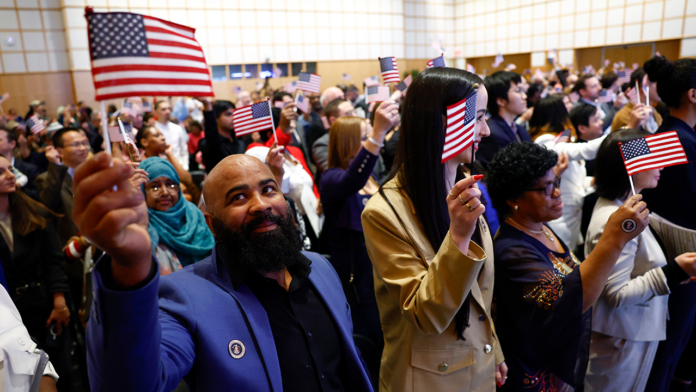Vidya Sethuraman
India Post News Service
President-elect Donald Trump’s early cabinet appointments signal that border security and immigration restrictions will be a central focus of his administration. In the EMS Briefing on Nov 15 immigration experts broke down Trump’s immigration priorities and explored the potential consequences for immigrants and the nation as a whole.
Jeremy Robbins, Executive Director, American Immigration Council pointed out that there are many obstacles to the implementation of the program, including insufficient human resources, lack of detention facilities and high financial costs. He estimated that if the deportation plan is fully implemented, it may require tens of billions of dollars in budget investment and result in the loss of millions of workers from the United States, which will seriously affect the U.S. economy.
Greg Chen, Senior Director of Government Relations for the American Immigration Lawyers Association (AILA) said mass evictions would not only strain resources but could also have an impact on the work of local law enforcement agencies.
Elizabeth Taufa, Policy Attorney & Strategist, Immigrant Legal Resource Center (ILRC) said the negative economic impact of mass evictions cannot be ignored. Data show that immigrant workers account for about 4% of the U.S. labor force, and their absence may lead to stagnation in certain industries, especially agriculture and service industries. In addition, the tightening of immigration policies will lead to further delays in the application and approval process, exacerbating labor shortages.
Julia Gelatt, Associate Director of our U.S. immigration policy program, Migration Policy Institute (MPI) added that immigrant deportations could lead to a decline in the U.S. gross domestic product, while weakening businesses’ dependence on labor and causing economic uncertainty. She emphasized that changes in immigration policy need to balance economic needs with social equity.
Experts believe that border control policies may become stricter, including strengthening the “Remain in Mexico” policy and extending the waiting time for asylum applications. Many experts warn that this will increase pressure on the border and trigger more legal and humanitarian disputes. But this discussion made it clear that the immigration issue is not only a legal issue, but also related to the economic development and social harmony of the United States.







